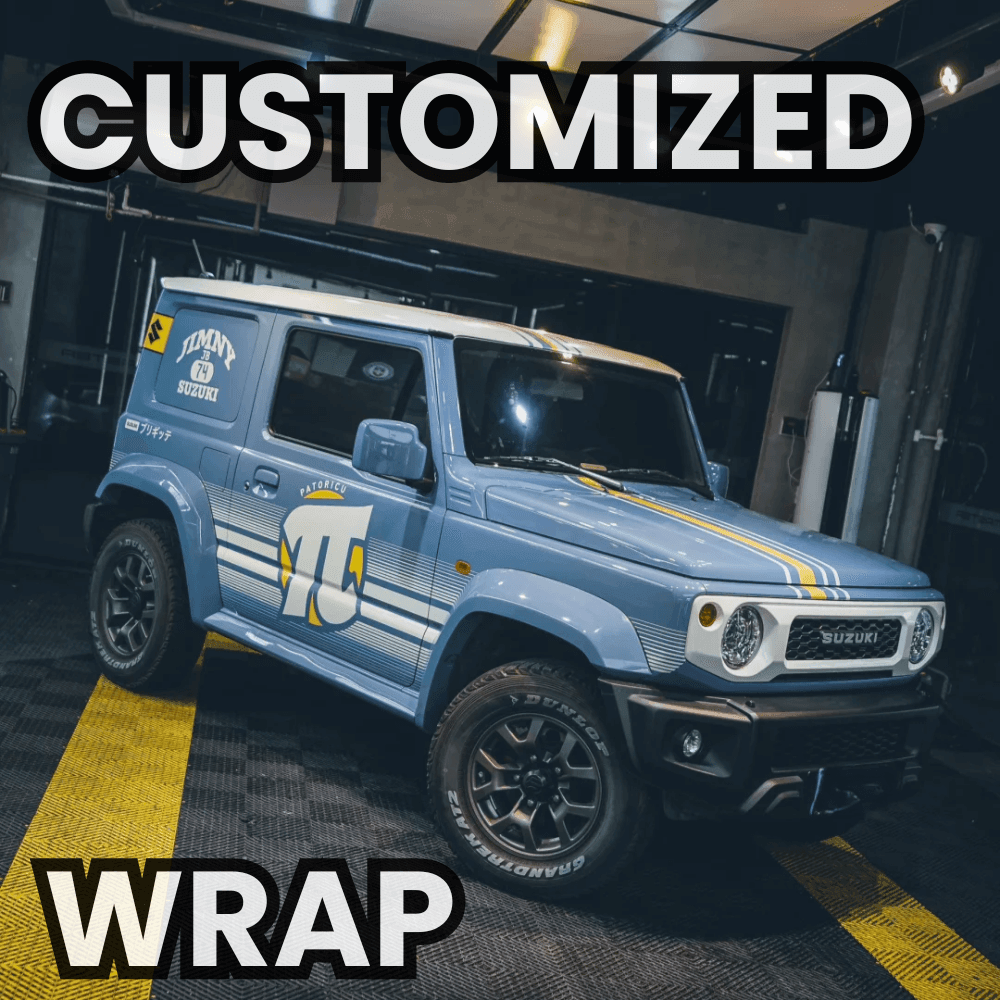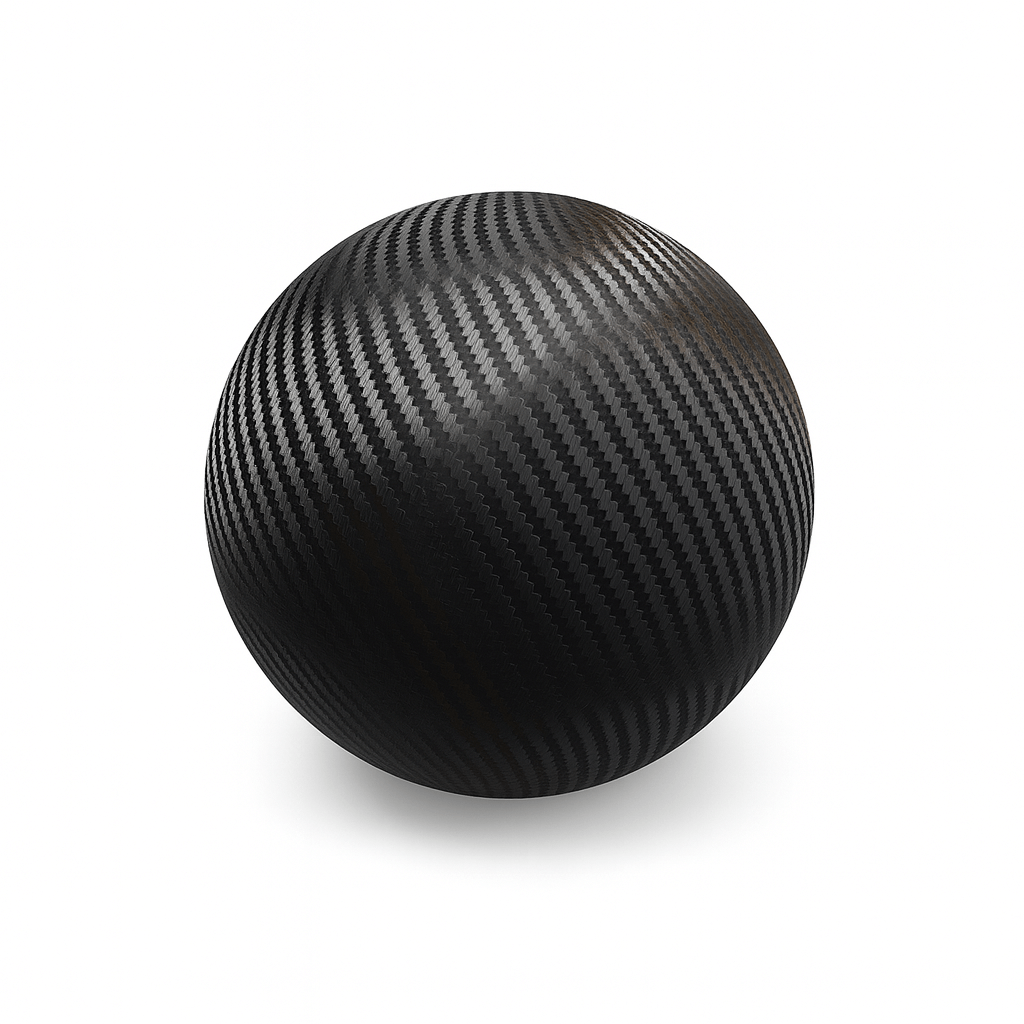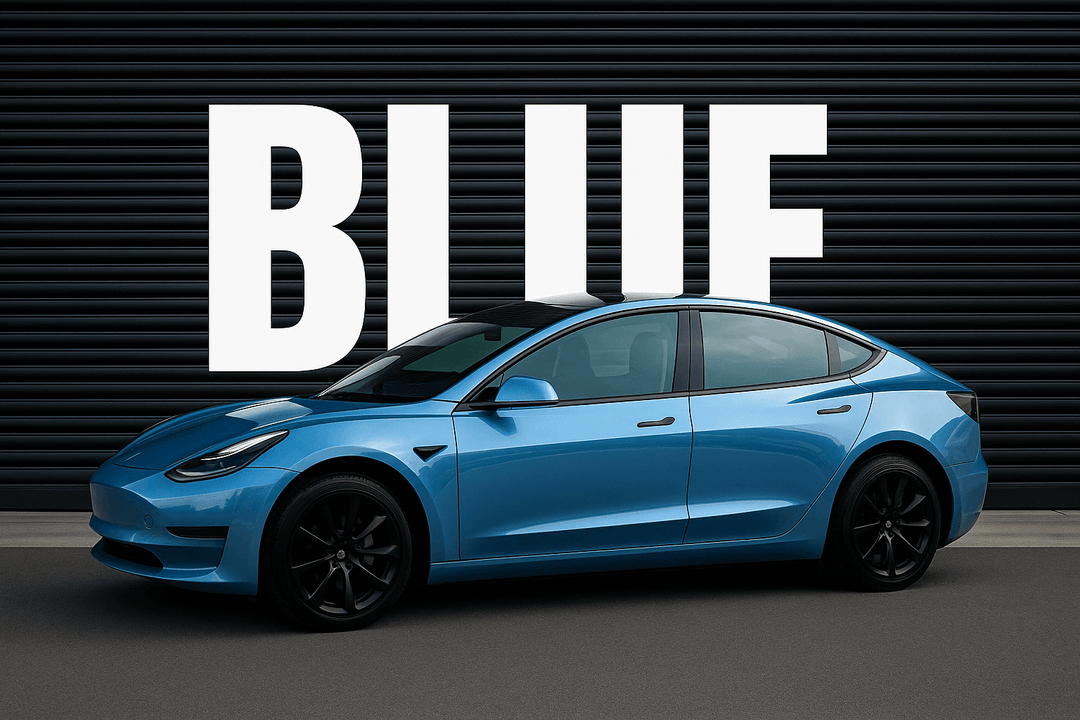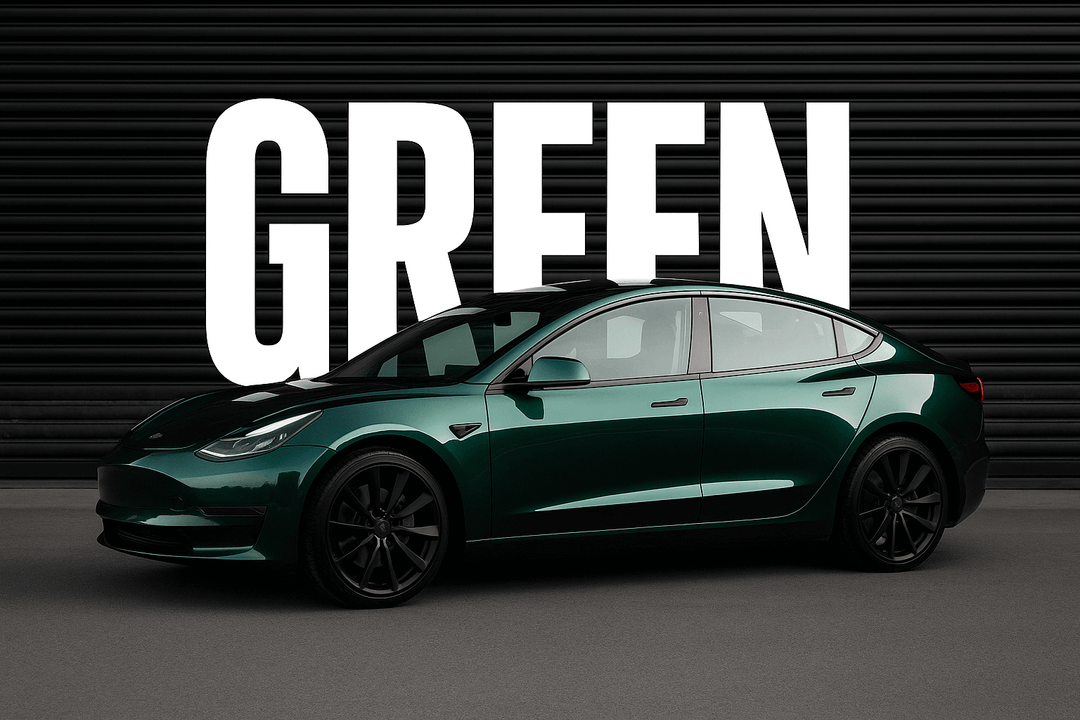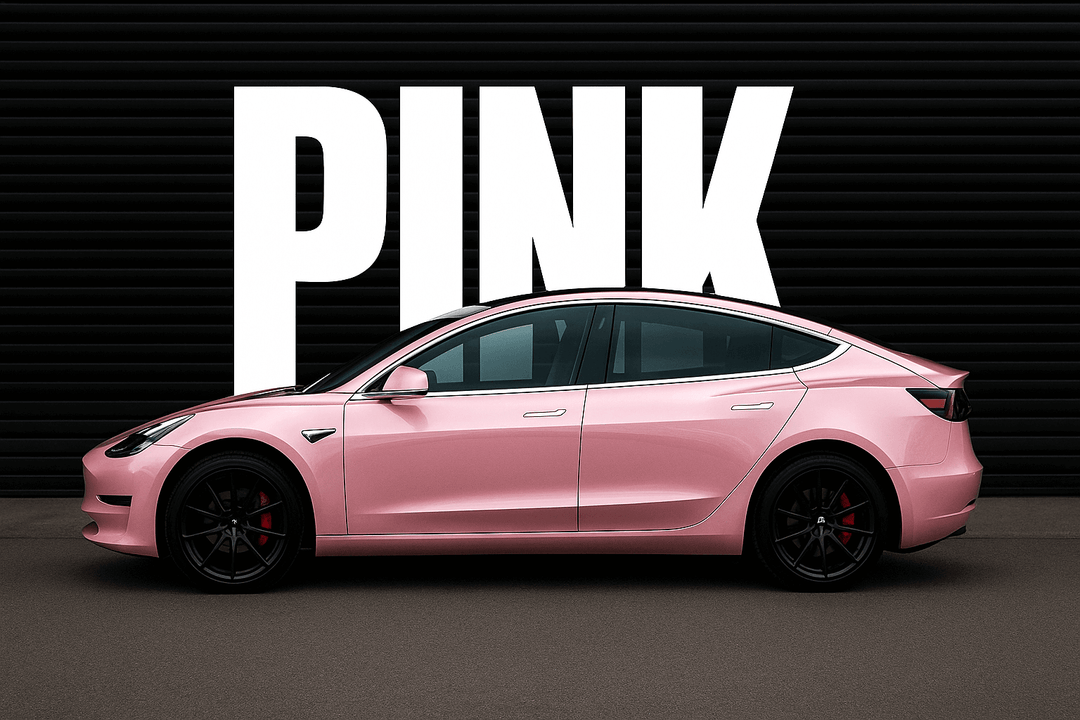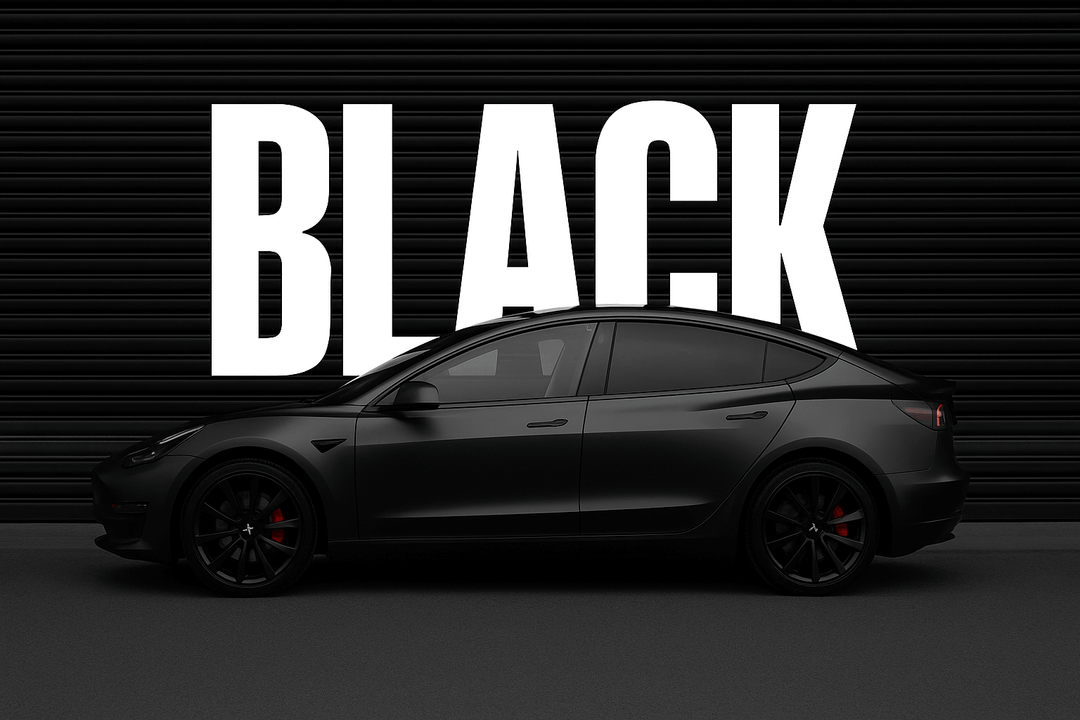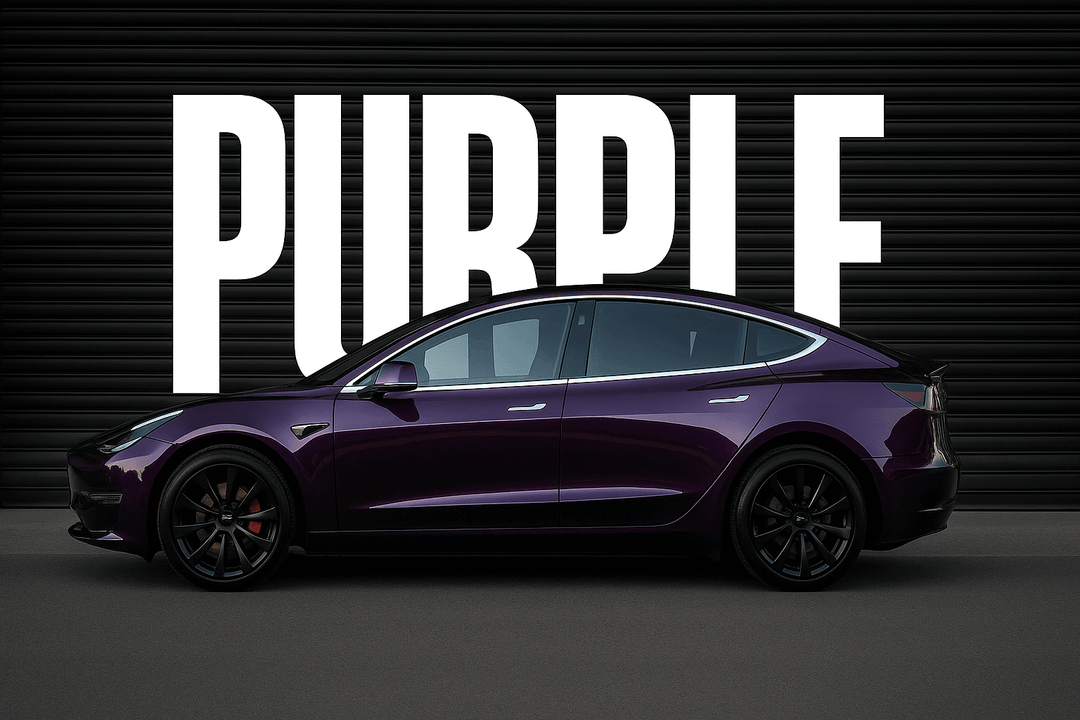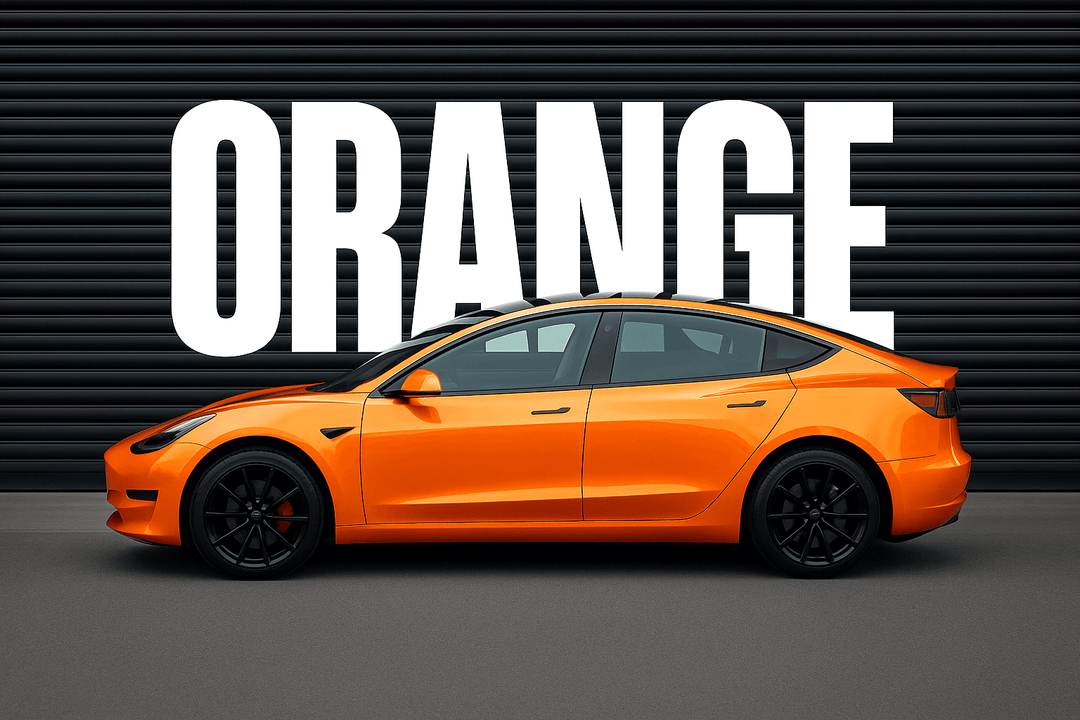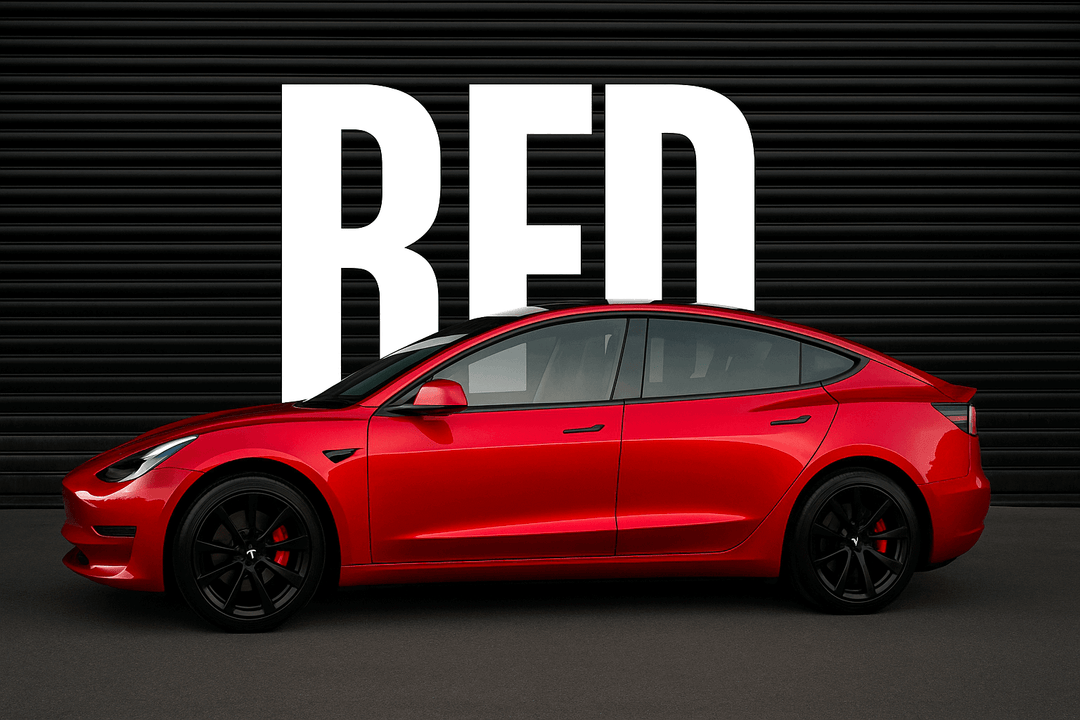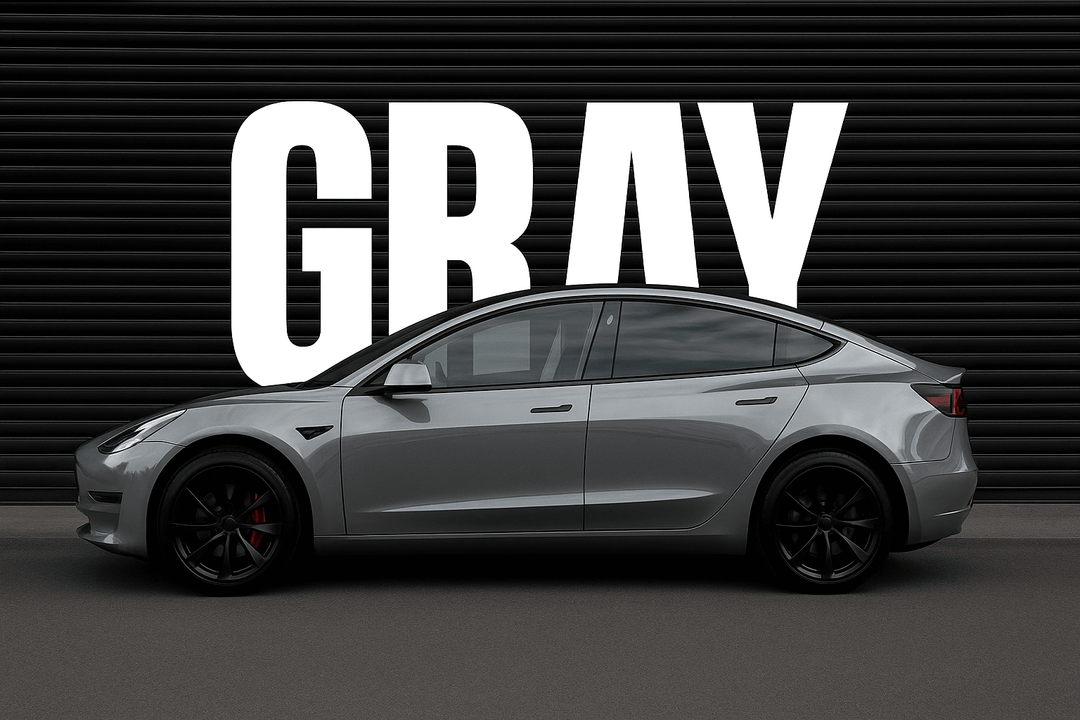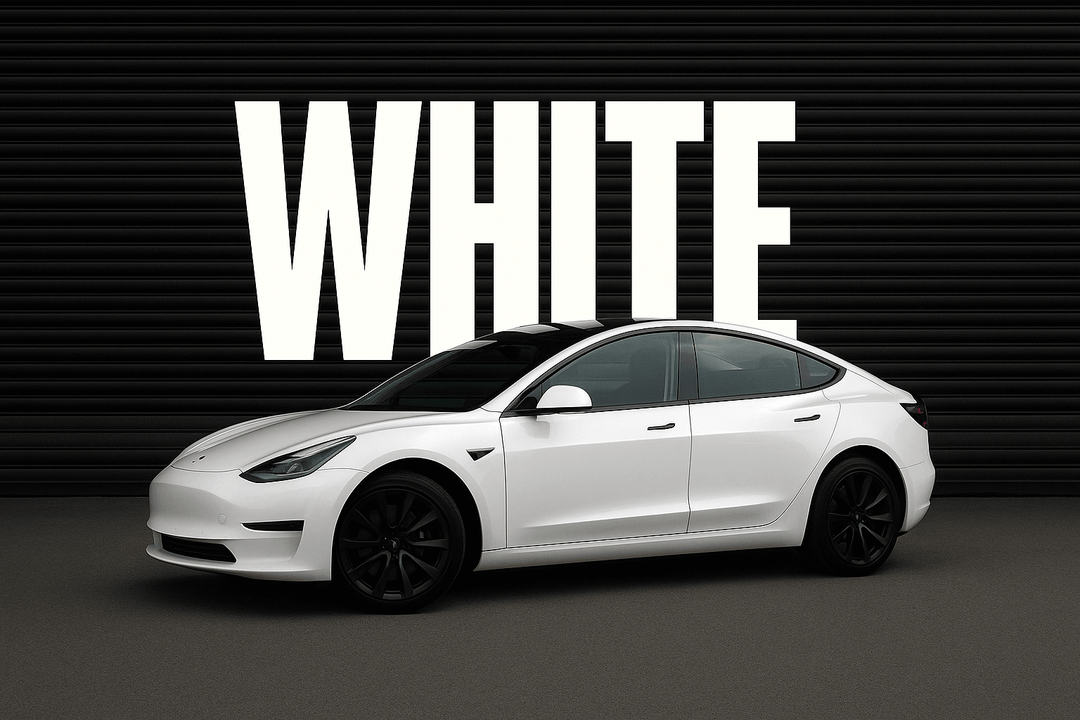How to Start a Car Wrap Business
Thinking about launching your own car wrap shop? You're not alone and you're right on time.
Over the past few years, the demand for vehicle customization has exploded, and vinyl wrap businesses are riding that wave to success. From full color-change wraps to custom graphics for advertising, more vehicle owners are skipping costly paint jobs and turning to wraps for style, protection, and branding. This shift has transformed the vehicle wrapping company market into a booming multi-billion-dollar industry with plenty of room for new entrepreneurs to thrive.
That’s why we created this guide. You're here because you want to know how to start a car wrapping business the right way, from setup to success. We’ve done the research, tapped into industry insights, and built a step-by-step resource to help you launch confidently and grow smartly. Whether you're just testing the waters or already wrapping on weekends, this guide will walk you through what it takes to turn your passion into profit.
Let’s get into the tools, costs, skills, and strategies you need to open your own thriving car wrap shop and dominate your local market.
Before You Start a Car Wrap Shop, Know the Pros and Cons
Jumping into the vinyl wrap industry is exciting, but like any business venture, it comes with its own set of advantages and challenges. Before investing in your tools and signing a lease on that new workshop, it's important to understand the full picture. Here’s a breakdown of the key pros and cons of starting a car wrap business, so you can make informed decisions from day one.
✅ Pros of Starting a Car Wrapping Business
1. Strong Earning Potential
One of the biggest draws of launching a car wrap shop is the opportunity to earn serious income. A full car wrap can range from $2,000 to $6,000, with relatively low material costs (often under $700 per job). Once you're trained and efficient, a single wrap job can be completed in one to two days, allowing for multiple clients each week. With a steady flow of customers and smart pricing, your car wrap startup can become a highly profitable venture.
2. Rapidly Growing Market
The demand for vinyl wraps is increasing across both consumer and commercial segments. Car enthusiasts want color-changing finishes. Businesses need rolling billboards. Motorcycles, boats, trucks, and vans are all fair game. This expanding market gives you access to a wide range of clients from individual car owners to corporate fleets, boosting your earning potential and long-term sustainability.
3. Low Inventory, High Customization
Unlike traditional auto businesses, you don’t need a huge inventory to get started. Most wraps are made-to-order or customized per client, which means you only stock what you need. This lowers your overhead and gives you flexibility in the types of services you offer, from full-body wraps to partial jobs like chrome deletes or racing stripes.
4. Creative and Rewarding Work
When you transform ordinary vehicles into head-turning statements and seeing your work drive around town builds pride, word-of-mouth, and your brand’s visibility.
⚠️ Cons of Starting a Car Wrapping Business
1. High Initial Startup Costs
While the car wrap business has a relatively low barrier to entry compared to franchises or auto body shops, it’s not entirely cheap.
2. Steep Learning Curve
Vinyl wrapping is a skill-based trade. Poor installations lead to bubbles, peeling edges, or visible seams—none of which customers will tolerate. Mastering the technique takes training, practice, and patience. If you plan to start solo, expect a period of lower efficiency as you hone your skills. And if you hire installers, you’ll need to pay for qualified labor.
3. Physical and Detail-Oriented Work
Car wrapping isn’t passive income. It’s physically demanding, requiring you to stand, bend, and focus on precision for hours. If you’re not detail-oriented or don’t enjoy hands-on work, this business may burn you out quickly.
4. Competitive Market in Some Areas
In certain cities, especially larger metro areas, the vehicle wrapping company space is already competitive. You'll need to carve out a niche, build strong branding, and deliver exceptional results to stand out. Effective local SEO, social media marketing, and customer referrals will be crucial to growing your visibility.
What Skills and Experience Do You Need to Start a Car Wrapping Business?
Starting a car wrap shop isn't just about having a garage and a roll of vinyl. To stand out in the market and run a sustainable business, you'll need a combination of technical expertise, business knowledge, and hands-on experience. Here's a breakdown of the most important skills every successful vehicle wrapping company should master:
Technical Skills: The Foundation of Great Installs
At the core of any vinyl wrap business is the skill of applying wraps with precision and care. Sloppy work will cost you customers. Here's what you need to know:
-
Vinyl Handling & Preparation: Learn how to clean, prep, and measure the vehicle properly. Poor surface prep is a top reason wraps fail early.
-
Heating Techniques: Use heat guns and torches to stretch and conform vinyl over curves, edges, and recessed panels without overstretching or distorting the print.
-
Cutting & Trimming: Precision cutting is essential. You'll use knifeless tape and blade work to ensure clean, invisible edges.
-
Wrap Installation: Apply the wrap bubble-free using proper squeegee techniques. This includes learning how to wrap complex shapes like bumpers, mirrors, and spoilers.
Tip: Start with flat panels and work your way up to complex contours. Practice on hoods, fenders, and doors before moving on to full cars.
Recommended Training: Free vs. Certified Programs
You don’t need a college degree to start your own car wrap startup, but you do need training and lots of hands-on practice. Here are your options:
Self-Taught (YouTube & Forums)
-
Platforms like YouTube offer free tutorials from industry pros like CK Wraps or The Wrap Institute.
-
Pros: Free, flexible, accessible anytime.
-
Cons: Limited feedback, no certification, and easy to pick up bad habits.
Certified Training Programs
-
Wrap-specific courses from Avery Dennison, 3M, Orafol, or HEXIS.
-
These workshops typically last 2–5 days and include hands-on instruction.
-
You'll learn wrap techniques, material handling, and troubleshooting.
-
You’ll also receive a certificate, valuable for building credibility and trust with customers.
Recommend starting with YouTube for fundamentals, then invest in certification once you're comfortable with basic installs.
Business Skills: Beyond the Wrap
Even the best wrap installer won’t succeed without solid business chops. Here’s what you’ll need to thrive as a car wrap shop owner:
Marketing
-
Build a brand and grow visibility through Instagram, TikTok, YouTube Shorts, and Google My Business.
-
Post your wrap jobs regularly with before-and-after shots, time-lapses, and customer testimonials.
-
Run local ads targeting your city or neighborhood.
Sales
-
Learn how to price your services and pitch customers on upsells like ceramic coatings, custom graphics, or chrome deletes.
-
Offer estimates quickly and clearly—confusing quotes can cost you clients.
Customer Service
-
Respond quickly to inquiries, keep customers updated during the install, and resolve issues professionally.
-
Happy clients turn into repeat customers and word-of-mouth referrals, which are critical in a service-based industry.
Essential Tools and Equipment Checklist for Your Car Wrap Shop
Before you wrap your first vehicle, you’ll need to set up your workspace and gather the tools of the trade. Starting a vinyl wrap business doesn’t require the same investment as a body shop or mechanic garage, but to produce professional results, the right equipment is non-negotiable.
Here’s a breakdown of everything you’ll need, divided into three key categories: shop setup, installation tools, and vinyl inventory.
Shop Setup: Create a Professional Wrapping Environment
Even if you’re starting small, your workspace must be clean, well-lit, and controlled. A bad working environment can ruin wraps with dust, poor adhesion, or incorrect vinyl stretching.
Minimum Shop Requirements:
-
Garage or Enclosed Bay: Must fit a full vehicle with room to move around it (at least 20'x10').
-
Bright Lighting: Use LED panel lights or daylight-balanced fluorescent tubes to reveal bubbles, creases, and dirt particles.
-
Climate Control: Maintain consistent temperatures (~70–75°F) and humidity for best vinyl performance.
-
Ventilation: Essential if you're using application fluids or prepping with isopropyl alcohol.
-
Vehicle Lift or Ramps (optional): Helpful for wrapping bumpers and rocker panels with precision.
Tools: The Vinyl Wrapping Essentials
Quality wraps require precision, and precision requires tools you can rely on. Here are the non-negotiables for any car wrap shop:
|
Tool |
Purpose |
|
Heat Gun or Torch |
Softens vinyl for stretching and contouring |
|
Squeegees (Felt & Teflon) |
Smooths vinyl and removes air bubbles without damaging surface |
|
Knifeless Tape |
For precise edge cuts without damaging paint |
|
Utility Knives & Spare Blades |
For trimming excess vinyl around edges and seams |
|
Vinyl Cutting Plotter |
Cuts designs, decals, or custom shapes from vinyl sheets |
|
Magnets & Masking Tape |
Helps align and position film before committing |
|
Infrared Thermometer |
Measures vinyl surface temp to prevent overheating/stretching |
|
Gloves (lint-free) |
Prevents fingerprints and aids in smooth handling |
|
Surface Prep Materials |
Includes isopropyl alcohol, lint-free cloths, clay bars, and squeegee prep fluids |
Inventory: Types of Vinyl You’ll Need
Your inventory is the heart of your vinyl wrap business. It’s what your customers see and pay for. Stocking a versatile selection of vinyl films ensures you can meet different style preferences and price points.
Types of Vinyl Wraps to Stock:
-
Cast Vinyl
-
Ultra-flexible, high-performance
-
Lasts 5–7 years
-
Brands: 3M 2080, Avery Dennison SW900, Oracal 970RA
-
Calendared Vinyl
-
Less flexible, budget-friendly
-
Lasts 3–5 years
-
Brands: Teckwrap, Yeswrap, Vinylfrog
-
Specialty Finishes
-
Chrome, brushed metal, carbon fiber, holographic, matte, satin, color shift
-
Higher cost, but higher impact
-
Great upsell for trend-conscious customers
How Much to Stock?
-
Full wrap jobs require 250–300 sq. ft. of vinyl
-
Keep 1–2 rolls of top sellers (e.g., matte black, gloss white, carbon fiber)
-
Order specialty colors or prints as needed
Partner with a reliable supplier that offers bulk pricing, fast shipping, and variety. Check out Yeswrap’s full vinyl collection for options.
Finding the Ideal Location for Your Car Wrap Shop
Choosing the right location can make or break your vinyl wrap business. While technical skills and marketing matter, your physical location plays a huge role in your visibility, customer convenience, and overall operational efficiency.
Here’s how to find the ideal spot for your car wrap shop:
1. Accessibility: Make It Easy to Find and Visit
Your location needs to be convenient for both your customers and your team. Look for a space that’s:
-
Easily accessible from major roads or highways
-
Close to car dealerships, body shops, or auto detailers (synergistic businesses)
-
Located in visible, high-traffic areas for free exposure
-
Equipped with sufficient parking space for multiple vehicles, including customer cars waiting for service
2. Size and Layout: Plan for Productivity
Your workspace needs to accommodate more than just a single car. It should support a smooth workflow from prep to finish, and scale with your growth.
What to Look For:
-
At least 500–1,000 sq. ft. for basic operations (enough for 1–2 vehicles)
-
Dedicated clean area or “install bay” for dust-free vinyl application
-
Separate space for:
-
Storage (vinyl rolls, tools, marketing materials)
-
Design and prep (computer station, printers, cutting plotters)
-
Reception/waiting area (optional but professional)
3. Zoning, Permits & Local Regulations
Before signing a lease or investing in renovations, check your city’s zoning laws and building requirements.
-
Zoning Compliance: Ensure your chosen location is zoned for automotive services or light industrial work.
-
Signage Restrictions: Some areas limit the size, height, or type of exterior signage you can use.
-
Noise & Parking Ordinances: If you’ll be working late or have multiple vehicles onsite, make sure local regulations allow it.
4. Know the Competitive Landscape
Competition isn’t always a bad thing—it can indicate that there’s strong demand in the area. But it can also make it harder to stand out if you're new.
How to Evaluate Competition:
-
Search “car wrap shop near me” on Google Maps and Yelp
-
Analyze reviews, pricing, services, and customer photos
-
Look for gaps in the market: Do other shops offer fleet wrapping, but not custom colors? Do they serve only high-end vehicles?
Licensing, Insurance & Legal Requirements for Your Car Wrap Business
Before you install your first wrap, you need to make sure your car wrap shop is legally protected and professionally structured. Skipping this step could lead to serious issues down the road—fines, lawsuits, or worse. Fortunately, handling the legal side of your vinyl wrap business is straightforward when you follow a clear process.
Here’s what you need to know about business registration, local licenses, and insurance to launch your operation with confidence.
Business Registration: Choose the Right Structure
Setting up your business legally gives you credibility, helps with taxes, and protects your personal assets. There are a few common options:
-
Sole Proprietorship: Easiest to start, but no legal separation between you and the business. Not ideal for liability protection.
-
LLC (Limited Liability Company): The most popular choice for small car wrap shops. Offers liability protection, flexibility, and simple tax filing.
-
DBA ("Doing Business As"): If you’re operating under a name other than your own, you’ll need to register a DBA with your state or county.
Use your state’s business portal to check name availability and file your LLC online in minutes.
Local Licenses and Permits
Business licenses and zoning approvals vary by location, so check your city and county regulations. Common requirements include:
-
General Business License: Often required for any commercial operation.
-
Zoning Permits: Especially important if you're operating out of a garage or shop in a residential area.
-
Home Occupation Permit: Needed if you plan to wrap from a residential property.
-
Sales Tax Permit: Required if you're charging tax on your wrap services and products.
Check with your city or county business office or visit yourstate.gov for specifics.
Insurance Coverage You Need
Insurance is not optional in this industry. Wrapping involves tools, vehicles, and potential liability, so you need to be protected.
Must-Have Insurance Policies:
-
General Liability Insurance
-
Covers accidents, customer injuries, and property damage caused by your work.
-
Example: A client slips in your shop or a wrap damages a car’s paint.
-
Commercial Property Insurance
-
Protects your shop space and equipment from fire, theft, or natural disasters.
-
Garage Keepers Insurance
-
Crucial if you store customer vehicles in your shop overnight.
-
Workers’ Compensation Insurance
-
Required if you hire employees. Covers work-related injuries and medical costs.
-
Business Owner’s Policy (BOP)
-
Bundles general liability and property coverage for cost savings.
Work with a business insurance broker who understands automotive services; they’ll help tailor a policy to your specific risk level.
How Much Does It Cost to Start a Car Wrapping Business?
Launching a successful car wrapping business requires more than just a passion for cars and creativity—it requires a clear understanding of startup costs. While it's possible to start small, having a realistic budget can help you avoid costly surprises and set your business up for long-term success.
Depending on your location, business model, and how lean or ambitious your launch plan is, you can expect to invest anywhere from $5,000 to $30,000 to get started. Let’s break that down section by section.
1. Rent or Lease of Workspace ($500–$2,000/month)
Your shop location is a major factor in your startup budget. While some solo entrepreneurs start from home garages, a dedicated workspace is often necessary to handle customer jobs professionally.
-
Small shared or industrial unit: $500–$2,000/month
-
Prime location with storefront: $3,000–$5,000/month or more
2. Tools & Initial Stock ($2,000–$7,000)
You’ll need reliable tools and quality vinyl wrap stock before you start. Here’s what most shops invest in early on:
|
Item |
Estimated Cost |
|
Heat gun & IR thermometer |
$50–$150 |
|
Vinyl cutter or plotter |
$300–$2,000 |
|
Squeegees, gloves, blades |
$200–$500 |
|
Wrap vinyl rolls (starter) |
$10,000–$20,000 |
|
Surface prep supplies |
$100–$300 |
|
Tool storage/workbenches |
$300–$1,000 |
3. Licenses, Permits & Business Registration ($100–$500)
Before you officially open your doors, make sure you're legally set up to operate.
-
LLC or sole proprietorship filing: $50–$200 (varies by state)
-
Business license & zoning permits: $50–$300
-
Resale permit or EIN: Usually free but essential for taxes
4. Insurance Coverage ($500–$2,000/year)
Running a shop without insurance is a major risk. A single incident—damaged vehicle, injured employee, or customer complaint—can cost you more than your entire startup budget.
-
General liability insurance: $500–$1,500/year
-
Garage or shop insurance: $1,000–$2,000/year for full coverage
-
Worker’s compensation (if hiring staff): Required in most states
5. Optional: Hiring Staff ($15–$40/hour)
Many shops begin as solo operations, but scaling up will require helping hands, especially for large vehicle wraps or high-volume bookings.
-
Apprentices: $15–$20/hour
-
Experienced installers: $25–$40/hour
-
Part-time admin or customer service: $15–$25/hour
6. Marketing and Branding ($1,000–$5,000)
You can be the best wrapper in town, but if no one knows you exist, you won’t make a dime. Allocate part of your startup capital to get visible fast.
|
Marketing Expense |
Cost Range |
|
Website design + hosting |
$1,000–$3,000 |
|
Logo and branding assets |
$300–$800 |
|
Local ads (Google, FB, IG) |
$500–$1,000/month |
|
Signage for shop |
$300–$1,000 |
|
Demo wrap on your own car |
Priceless |
7. Education & Certification ($995+)
Getting certified isn’t mandatory, but it adds serious credibility and ensures quality work. Clients are far more likely to trust a trained installer.
-
Vinyl wrap training programs: $995–$2,000/person
-
Online vs. in-person training: Online is cheaper, but in-person courses offer hands-on experience and certifications from major brands
Finding Your First Customers: Build Trust, Visibility, and Momentum
So your tools are ready, your shop is prepped, and you're itching to get your first job—but where do your first paying customers come from? The truth is, you can be the best vinyl installer in town, but without visibility, no one will know your car wrap shop exists.
At the early stage of your car wrap startup, your priority should be building trust, showing off your skills, and making it easy for customers to find and contact you. Here's how to do exactly that:
1. Build a Website and Boost Local SEO
Even in the era of social media, a professional website builds credibility and serves as your 24/7 digital storefront. Your website should include:
-
Home + About Page: Share your story and expertise
-
Gallery: Before-and-after photos of wraps (even if you start with your own car)
-
Pricing Info or Quote Form: Let users submit inquiries easily
-
Contact Info: Include clickable phone numbers, a map, and hours
Local SEO Must-Haves:
-
Claim and complete your Google Business Profile
-
Add your shop to Yelp, Bing Places, Apple Maps, and other directories
-
Use keywords like: “car wrap shop in [your city]”, “vinyl wraps near me”, or “custom car wraps [city/state]”
Ask early clients to leave Google reviews. These boost your rankings and build trust fast.
2. Use Social Media to Showcase Your Work
If your potential customers are online, that’s where you need to be. Platforms like Instagram, TikTok, and Facebook are made for showing off transformations.
Instagram & Facebook Tips:
-
Post high-quality photos and videos of every wrap job
-
Use reels and stories to show the process: prep, install, reveal
-
Use trending hashtags: #carwrap, #vinylwrap, #wraplife, #customcar, and location-specific tags like #lasvegaswraps
TikTok Tips:
-
Post 15–30 second videos of wrapping a hood, color reveals, or funny “expectation vs. reality” clips
-
Use trending sounds and wrap-related keywords
Ad Strategy:
-
Run targeted Facebook and Instagram ads in a 25-mile radius of your shop
-
Promote deals like: “$500 off full wrap for first-time customers” or “Get your roof wrapped for $250 – this week only”
Document everything. Your first 10 installs are your portfolio and your best marketing tool.
3. Partner with Local Car Clubs and Dealerships
Car enthusiasts LOVE custom wraps—and many of them are looking for a trusted local installer. That’s your in.
-
Visit local car meets or club events and pass out business cards or branded merch
-
Offer exclusive discounts to club members
-
Partner with dealerships, especially those selling luxury, sports, or used vehicles—they’re often looking to upsell wrap packages or refurbish paint jobs
4. Offer Free Wraps for Influencers or Demo Vehicles
Need to build your portfolio and get word-of-mouth fast? Strategic freebies can be more valuable than paid ads—if used wisely.
-
Offer a free wrap to a local influencer, YouTuber, or popular car content creator in exchange for video promotion or shoutouts
-
Wrap your own vehicle with a standout color and bold branding—your car becomes a rolling billboard
-
Offer discounted wraps to friends or early adopters who agree to post and tag your business online
How to Price Your Car Wrap Services
Pricing your car wrap services correctly is one of the most important decisions you’ll make as a shop owner. Price too low, and you undercut your profits. Price too high, and potential clients may walk away. To run a profitable and competitive vinyl wrap business, you need a pricing strategy that reflects your costs, your skill, and your market.
Here’s how to confidently price your services and maximize revenue through smart upsells.
Industry Average Pricing (2025 Data)
The cost of car wraps varies depending on service type, location, and materials used. Below is a general benchmark:
|
Service Type |
Average Customer Price (USD) |
|
Full Sedan Wrap |
$2,500–$3,500 |
|
Full SUV/Truck Wrap |
$3,000–$5,000 |
|
Luxury/Exotic Wrap |
$4,000–$7,000+ |
|
Partial Wrap (hood/roof) |
$300–$1,500 |
|
Chrome, Color Shift, etc. |
$4,500–$6,000+ |
|
Commercial Van/Fleet Wrap |
$1,500–$3,000 per unit |
These prices reflect what customers typically pay, not your costs. We'll talk about profit margins below.
Factors That Affect Wrap Pricing
To set your rates accurately, you’ll need to consider more than just square footage of vinyl. Several key factors influence how much you should charge:
1. Vehicle Size and Shape
-
Larger vehicles (vans, trucks, SUVs) require more vinyl and labor.
-
Complex vehicles (with curves, spoilers, trim pieces) take longer to prep and install.
2. Vinyl Type and Finish
-
Standard gloss/matte films are more affordable and easier to work with.
-
Specialty films like chrome, satin metallic, carbon fiber, or color-shift wraps cost significantly more and take extra skill to apply.
3. Design and Graphics
-
A simple color change wrap is easier to price than a custom-designed wrap that requires graphic design, printing, and lamination.
4. Surface Prep Needs
-
Vehicles with existing paint damage, residue, or ceramic coating may require extra prep time, which should be factored into your quote.
For example, a matte black wrap on a clean Model 3 might take 1-2 days. A chrome wrap on a 7-seater SUV with a body kit could take 2–3 days and twice the vinyl.
Upsell Opportunities That Boost Your Revenue
Once you’ve built trust with a client, you can offer high-value add-ons that not only increase your profit but also enhance the vehicle’s appearance or protection. Here are popular upsells to include in your pricing menu:
1. Custom Graphics and Branding
-
Add logos, racing stripes, or decals
-
Ideal for commercial clients and fleets
-
Cost: $100–$1,000+ depending on complexity
2. Chrome Deletes
-
Wrapping chrome trim, grilles, and window surrounds in matte black or gloss black
-
Enhances the look of modern vehicles, especially Teslas
-
Cost: $200–$800, depending on coverage
3. Ceramic Coating Over Vinyl
-
Offers added protection, UV resistance, and makes cleaning easier
-
Extends the life of the wrap and adds shine
-
Cost: $400–$1,200 depending on vehicle size
4. Paint Protection Film (PPF)
-
Add PPF to high-impact areas like bumpers or hoods, along with vinyl wrap
-
A great hybrid package for clients who want aesthetics + protection
💡 Offer packages like:
-
Basic Wrap
-
Wrap + Chrome Delete
-
Wrap + Ceramic Coating
-
Full Custom Branding Package
Sample Pricing Breakdown
Let’s say a customer wants a full wrap on a midsize SUV with a color-shifting finish.
|
Item |
Cost |
|
Vinyl (300 sq. ft @ $4/sq. ft) |
$1,200 |
|
Labor (3 days @ $400/day) |
$1,200 |
|
Shop Overhead (electricity, tools, rent) |
$300 |
|
Total Cost to You |
$2,700 |
|
Recommended Customer Price |
$4,000–$4,500 |
|
Net Profit |
$1,300–$1,800 |
How Much Money Can You Make with a Car Wrapping Business?
The profitability of a car wrapping business can vary widely, but the potential to earn a solid income or even scale to six figures and beyond is very real. Your revenue, expenses, experience level, and market demand all influence your final take-home pay. Let’s break it down so you can estimate how much you could realistically earn as a shop owner or solo installer.
Average Income for Wrap Installers
As a baseline, independent car wrap installers with solid skills typically earn around $60,000–$75,000 per year. That’s based on working solo, doing 3–5 wraps per month, and keeping overhead costs low.
But as your efficiency, reputation, and shop capacity grow, your income can scale significantly.
How to Estimate Your Income: Key Variables to Consider
To find out what you can make, start with these five areas:
1. Pricing Strategy
The more strategic your pricing, the more room you’ll have for profit. If you price competitively while factoring in your time, material, and operational costs, each job can deliver healthy margins.
Example:
-
Full wrap customer pays: $3,000
-
Materials + labor cost: $1,300
-
Profit per job: $1,700
Doing 4 full wraps per month would net you:
-
Monthly gross: $12,000
-
Monthly profit: ~$6,000+
2. Productivity and Skill Growth
When you're just starting, a full wrap may take 2–3 days. But as your skills sharpen, you can:
-
Cut install time by 30–50%
-
Book more jobs per month
-
Take on higher-end or complex wraps
3. Operating Expenses
To know how much you’ll actually keep, calculate your fixed monthly costs. Here's an example of what you might pay in your first year:
|
Expense |
Estimated Monthly Cost |
|
Shop Rent |
$1,200–$2,000 |
|
Utilities |
$200 |
|
Insurance |
$100–$300 |
|
Vinyl Materials |
~$3–$5/sq. ft per job |
|
Tools & Maintenance |
$100 |
|
Marketing & Website |
$1,000 |
|
Labor (if any) |
Varies |
Subtract total expenses from monthly revenue to find your net profit.
4. Client Demand & Market Size
If you’re in a car-heavy metro area (think Los Angeles, Houston, Atlanta, Miami), your potential client base is huge. Add in:
-
Car enthusiasts
-
Commercial fleet owners
-
Dealerships and auto resellers
-
Businesses needing branded vehicles
With strong local SEO and referrals, even a solo installer can generate $100K+ in gross revenue annually with just a few steady monthly clients.
5. Upsells and Recurring Revenue
Don’t forget: you’re not limited to full wraps. Offer add-on services like:
-
Chrome deletes ($300–$800 each)
-
Ceramic coating on vinyl ($500–$1,000)
-
Logo and lettering installs for fleets ($200–$2,000+)
-
Annual wrap maintenance and cleaning package
Sample Monthly Earnings Projection (Solo Installer)
|
Metric |
Estimate |
|
Full Wraps/Month |
4 @ $3,000 = $12,000 |
|
Chrome Deletes |
4 @ $500 = $2,000 |
|
Misc. Installs/Upsells |
$1,000 |
|
Gross Revenue |
$15,000/month |
|
Monthly Expenses |
~$6,000 |
|
Net Monthly Profit |
~$9,000 |
|
Annual Profit Potential |
$100,000+ |
Great Customer Support: The Secret to a 5-Star Car Wrap Business
In the world of car wrapping, your tools and techniques matter but your customer service is what sets your business apart. People may come to you for vinyl, but they stay (and refer others) because of how you treat them.
Delivering great customer support builds trust, loyalty, and long-term success. Here's how to do it consistently and effectively as a car wrap shop owner.
1. Be Responsive and Reliable
From the moment someone reaches out, your response time says everything about your professionalism.
-
Respond to inquiries quickly—ideally within a few hours
-
Use an auto-responder for after-hours inquiries to set expectations
-
Follow up with customers after quotes, installs, and appointments
2. Stick to Deadlines and Be Transparent
Meeting timelines isn’t just a nice touch—it’s essential. If you say a full wrap takes three days, deliver in three or less. And if delays happen? Be honest and upfront.
-
Provide realistic timelines for every project
-
Communicate clearly if issues arise (e.g., shipping delays, weather, unexpected prep work)
-
Always under-promise and over-deliver
“We’ll have it ready Friday by noon”—and delivering Thursday evening—creates positive surprise and trust.
3. Offer Warranties or Guarantees
Offering a simple workmanship warranty (e.g., 12 months) can set you apart from competitors who don’t back their work. It shows confidence and builds peace of mind for clients.
Typical coverage might include:
-
Peeling or lifting due to installation errors
-
Bubbles or premature edge failure
-
Minor reinstallation if something goes wrong within the warranty period
4. Go the Extra Mile
Small details leave a big impression. The best customer experiences often come from the little things you didn’t have to do:
-
Offer a free exterior wipe-down after the wrap install
-
Provide a post-install care sheet or vinyl cleaning kit
-
Send a thank-you message or discount for their next visit
-
Snap and share professional photos of their wrapped car (with permission) to tag them on social media
5. Turn Customers into Advocates
Word-of-mouth and online reviews are gold in this business. Great service = free marketing.
-
Ask happy clients to leave a Google or Yelp review right after pickup
-
Offer referral rewards (e.g., $50 credit for each new customer they send)
-
Feature customer testimonials on your website and social channels
Encourage clients to tag your shop in their car photos. Wrapped cars are showpieces—take advantage of the visibility.
Start Your Wrap Career!
You’ve now got the blueprint to launch a profitable, professional, and highly rewarding car wrap business. From equipment setup to pricing strategy, customer service, and location planning, this guide has walked you through the essential steps to turn your passion for vehicle customization into a thriving operation.
But reading alone won’t get you there—taking action will.
✅ Invest in the right tools
✅ Build your skills through hands-on training
✅ Treat every customer like your first big break
✅ Stay sharp by following trends, upgrading your service, and refining your brand
Starting a vinyl wrap business takes dedication and effort—but with the right mindset, smart planning, and relentless improvement, you can carve out your space in this fast-growing industry.
Ready to launch your wrap career?
Bookmark this guide, follow our upcoming posts, and when you're ready to stock up on premium wrap film, reach out to the team at Yeswrap. We’ll help you get set up with a wholesale account so you can access high-quality, affordable vinyl at exclusive business rates.
Starting a Car Wrap Business FAQs
❓ How much does it cost to start a car wrap business?
Startup costs can range from $5,000 to $30,000+ depending on your setup. This includes:
-
Tools and equipment (heat guns, squeegees, knifeless tape, plotters)
-
Vinyl inventory
-
Shop rent or garage upgrades
-
Business licenses and insurance
-
Training and certifications
You can start small from home and scale up as demand grows.
❓ Do I need a license to start a car wrap shop?
Yes. At minimum, you’ll need:
-
A general business license for your city or county
-
A sales tax permit (in most states) if you sell physical products
-
Compliance with local zoning laws and signage regulations
You may also need a home occupation permit if operating from a residential space. Always check local regulations before starting.
❓ Can I start a car wrapping business from home?
Absolutely—but it depends on your local zoning and the space available. A two-car garage can work for part-time wrapping or personal projects, but you’ll need:
-
Clean, climate-controlled conditions
-
Good lighting
-
Proper ventilation
-
Approval from your local business office (if zoning applies)
❓ Is car wrapping a good business?
Yes. Car wrapping is one of the fastest-growing sectors in the automotive customization space. It offers:
-
Strong profit margins (20–50% depending on project and scale)
-
Growing market demand from individuals and commercial clients
-
Creative freedom and the ability to turn a skill into a full-time income
With quality work and solid marketing, it can become a highly profitable, scalable business.
❓ What tools do I need to wrap cars?
Essential car wrapping tools include:
-
Heat gun or torch (to stretch and set vinyl)
-
Squeegees (Teflon or felt edge for smoothing)
-
Knifeless tape (to cut without damaging paint)
-
Utility knives with sharp blades
-
Vinyl cutting plotter (for decals or custom shapes)
-
Surface prep supplies (isopropyl alcohol, lint-free cloths)
As you grow, you may also invest in design software, ramps, and vinyl printers.
❓ How do I find clients for my car wrap shop?
Finding customers starts with visibility:
-
Build a website and optimize it with local SEO
-
Set up a Google Business Profile and claim listings on Yelp and Maps
-
Post your work regularly on Instagram, TikTok, and Facebook
-
Network with car clubs, dealerships, and local businesses
-
Offer discounts or demo wraps to influencers to get exposure
Consistent communication, professional service, and visible results will grow your client base faster than ads alone.







